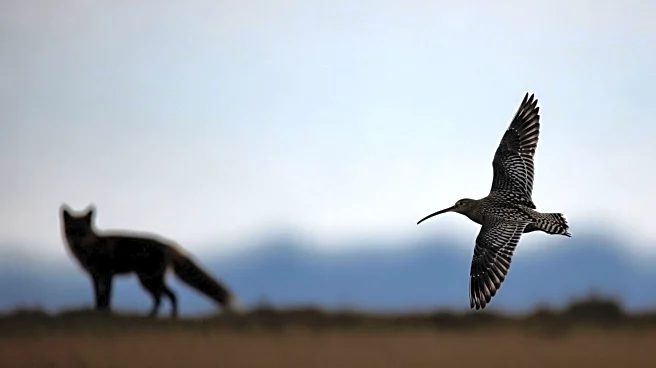What is the story about?
What's Happening?
Conservationists in the UK are debating whether culling foxes and crows is necessary to protect the declining curlew population. The curlew, a ground-nesting bird, has seen a 60% decline in 25 years due to factors like farming practices and increased mesopredator populations. Conservationist Mary Colwell suggests that predator control may be essential to save the curlews, despite her personal aversion to the idea. Others, like Dr. Ruth Tingay, argue that lethal control should be a last resort, emphasizing the need to address broader issues like intensive agriculture and habitat loss.
Why It's Important?
The debate highlights the complex challenges in wildlife conservation, balancing predator control with ethical considerations and long-term ecological impacts. The decline of ground-nesting birds like the curlew reflects broader environmental issues, including habitat destruction and mismanagement of natural resources. The discussion around predator control raises questions about human intervention in ecosystems and the ethical implications of culling wildlife. The outcome of this debate could influence conservation strategies and policies in the UK, impacting biodiversity and ecosystem health.
Beyond the Headlines
The ethical dilemma of culling predators to save other species underscores the broader issue of human impact on natural ecosystems. The debate may prompt discussions on sustainable farming practices and the need for comprehensive conservation strategies that address root causes of wildlife decline. It also highlights the role of public opinion and societal values in shaping conservation policies, as stakeholders weigh the costs and benefits of different approaches to wildlife management.















